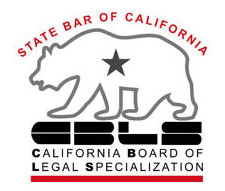Why Living Trusts Work Even When No Legal Transfer of Ownership Takes Place
 Many years ago, the law held that any trust that had the same person as grantor, trustee, and beneficiary was void, because it was just a paper transaction and didn’t really affect the rights and responsibilities of any parties to the so-called trust. This principle was known as the “merger rule.” However, this rule has since been superseded, and is no longer in effect, provided the trust is properly drafted. Before one can really understand what the merger rule means, it’s important to define what a “grantor,” “trustee,” and “beneficiary” are.
Many years ago, the law held that any trust that had the same person as grantor, trustee, and beneficiary was void, because it was just a paper transaction and didn’t really affect the rights and responsibilities of any parties to the so-called trust. This principle was known as the “merger rule.” However, this rule has since been superseded, and is no longer in effect, provided the trust is properly drafted. Before one can really understand what the merger rule means, it’s important to define what a “grantor,” “trustee,” and “beneficiary” are.
A grantor is the person who sets up a trust and “grants” property into the trust. The trustee is the person who (as the name implies) is entrusted with the management of the assets placed into the trust. Finally, the beneficiary is the person who, not surprisingly, is entitled to receive the benefits of the trust.
Way back in 1909, in a legal case called Estate of Washburn, a judge laid out the rule that a trust that vested legal title (trusteeship) and equitable title (beneficiary status) in a single person was void. The reasoning behind this rule was that there’s no point in a trust that accomplishes the same thing as owning the property as an individual.
Ask Dave About
"Ask Dave" is a growing collection of videos that explain estate & business planning terms and concepts in simple terms anyone can understand.Our goal is to empower you to make informed decisions when it comes to your future. Some popular topics are:
- About Probate
- Downside of Probate
- How A Trust Works
- Planning & Wills

Our Practice Areas
- Trusts (both simple and complex)
- Pour-Over Wills
- Powers of Attorney (health care & financial)
- Probate
- Asset Allocation & Trust Subdivision
- Estate Tax Planning & Strategy
- Capital-Gains Tax Planning
 In response to this ruling, statutes were adopted that created exceptions to the merger rule. Now, under California law, a trust is not void, even if the grantor, trustee, and beneficiary are the same person, as long as there are people designated in the trust document to serve as “successor trustees” and “remainder beneficiaries” once the original grantor has passed away. If there are people waiting in the wings to take over the trust once the settlers are gone, then the trust has a purpose–estate planning–that gives it a reason to exist. Thus, the merger rule doesn’t apply.
In response to this ruling, statutes were adopted that created exceptions to the merger rule. Now, under California law, a trust is not void, even if the grantor, trustee, and beneficiary are the same person, as long as there are people designated in the trust document to serve as “successor trustees” and “remainder beneficiaries” once the original grantor has passed away. If there are people waiting in the wings to take over the trust once the settlers are gone, then the trust has a purpose–estate planning–that gives it a reason to exist. Thus, the merger rule doesn’t apply.
The merger rule is so old, and the exceptions are so broad, that it practically never becomes an issue in modern trust practice. It’s mostly just an interesting bit of legal trivia. As long as the grantors have designated people to step into their shoes as trustees and beneficiaries when the grantors pass away, the merger rule shouldn’t have any effect on their trusts
For help with your estate planning, and to learn about transfer of ownership and Living Trusts, please call David Morris at (916) 789-9810.

